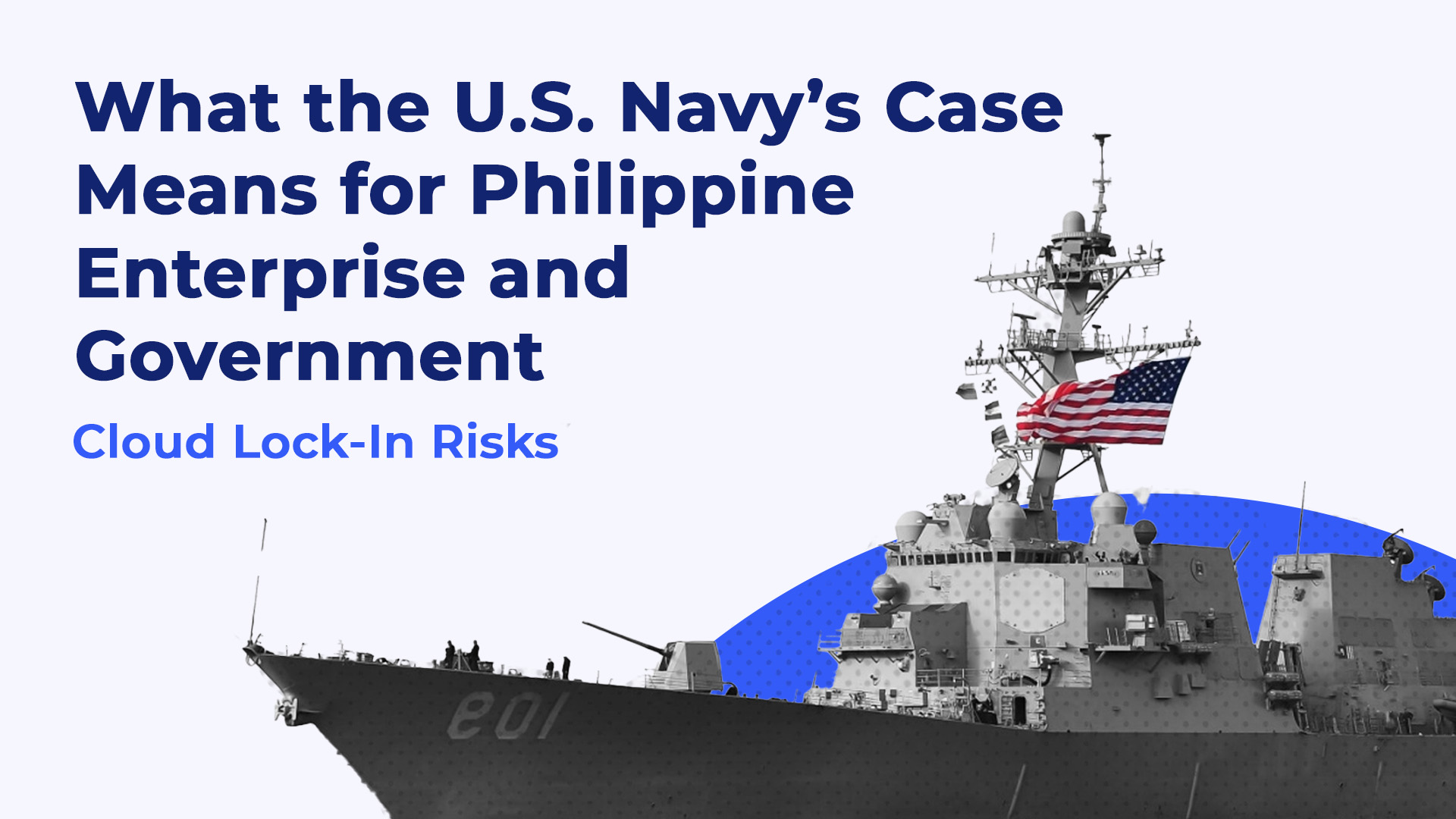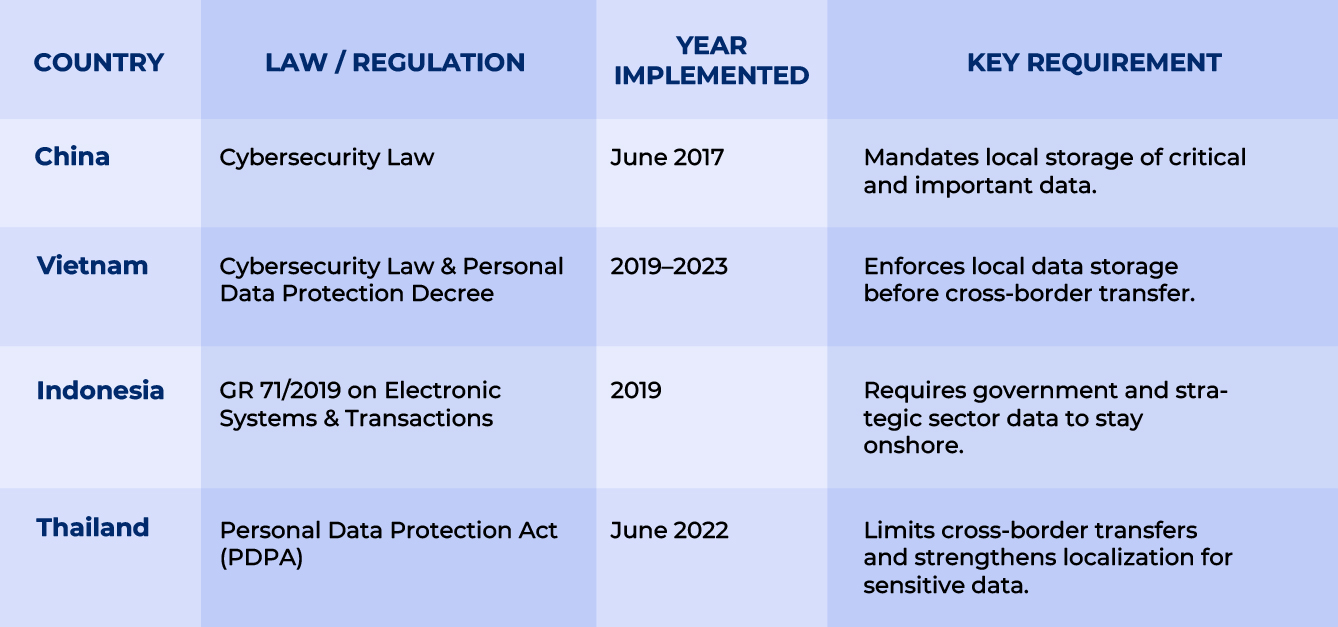
Cloud computing powers the Philippines' digital transformation, but it comes with the critical risk of vendor lock-in. This text explores how dependency on a single hyperscaler can lead to escalating costs and compliance issues with DICT and NPC regulations. It positions CTO Cloud as the solution, providing a secure, local, and flexible cloud environment that keeps Philippine organizations in control of their critical data and digital infrastructure.

Cloud computing has become the foundation of digital transformation, powering both private enterprises and public sector agencies in the Philippines. From citizen databases to mission-critical business systems, nearly every organization now depends on the cloud to operate efficiently.
But with this reliance comes a major risk: vendor lock-in.
A recent case from the U.S. Navy’s Naval Sea Systems Command (NAVSEA) revealed how deeply dependent the agency had become on Microsoft Azure, making it nearly impossible to shift to another provider without major cost, disruption, and risk.
This isn’t just a U.S. military concern; it’s a warning for both Philippine enterprises and government agencies that rely on global cloud platforms for sensitive operations and national data.
What the NAVSEA Report Revealed
The Navy’s findings were clear:
Even an institution with the resources of the U.S. Navy discovered how hard it can be to exit once you’re locked into one cloud provider.
Why Lock-In Matters for Both Businesses and Government

Vendor lock-in doesn’t just increase costs. It also creates long-term operational, security, and compliance risks for both enterprises and government institutions, such as:
For the public sector, lock-in can also mean losing control over citizen data, slowing down digital governance initiatives, and increasing exposure to foreign jurisdiction risks.
The Philippine Perspective
In the Philippines, cloud lock-in risks are especially important due to data sovereignty laws and regulatory frameworks led by the DICT (Department of Information and Communications Technology) and the National Privacy Commission (NPC).
Sectors such as finance, healthcare, BPO, and government agencies handle highly sensitive or confidential data. Depending on overseas hyperscalers can lead to:
For government agencies managing critical public systems, these risks directly affect national security, public trust, and digital sovereignty.
In fact, much of the Philippine government’s and enterprises' data and mission-critical systems are currently hosted overseas. This was largely due to the country’s unreadiness to rapidly scale up domestically when the pandemic struck. But that convenience now exposes a profound strategic vulnerability. If data and systems of national importance reside mostly in foreign jurisdictions, the security, resilience, and sovereignty of those systems are effectively partially out of the Philippines' hands. A disruption, whether a geopolitical friction, cross-border legal order, or foreign regulatory clampdown, could cascade to severely impair essential services or compromise sensitive information.
This is no longer a hypothetical risk; it is a live exposure!
As the APAC region tightens its stance on data localization, the Philippines could soon be compelled (or mandated via law) to bring all government and enterprise sensitive data back onshore. The transition would be painful, fraught with huge costs, lengthy re-engineering, and operational risk due to the poor CloudStack choices. To avoid that worst-case scenario, government agencies and local enterprises must begin planning well in advance.

How CTO Cloud Helps Enterprises and Government Avoid Lock-In

At CTO Cloud, we design solutions for both Philippine enterprises and Government Agencies, providing a secure, flexible, and sovereign cloud environment that ensures long-term control and compliance.
Here’s why Philippine businesses choose:
Whether you manage an enterprise workload or a public data platform, CTO Cloud enables you to stay compliant, connected, and in control.
Build with Confidence
Even the U.S. Navy, despite its resources, fell into vendor lock-in, but at least its data remains sovereign and hosted within U.S. jurisdiction.
In the Philippines, the risk is greater: many agencies are locked-in with foreign clouds, meaning their data is both inaccessible and outside national control.
CTO Cloud offers the smarter alternative, a secure, sovereign, and future-ready cloud that keeps your data in-country, compliant, and fully under your control.
Across the Philippines, many sectors, from finance and BPOs to healthcare and government agencies, still depend on foreign hyperscalers like AWS, Azure, and Google Cloud. While these platforms offer global scale, they also pose hidden risks to data security, compliance, and business continuity.
Recently, several Philippine banks suffered digital service disruptions linked to a global outage, while a government agency faced cyberattack attempts through a third-party cloud platform, underscoring the need for data sovereignty and local oversight.
When systems are hosted abroad, organizations lose visibility, control, and jurisdictional protection, critical under the Data Privacy Act of 2012 and regulations set by BSP, DICT, and NPC.
At CTO Cloud, our infrastructure is fully hosted within the Philippines, ensuring that both enterprises and government agencies stay compliant, secure, and connected. With transparent pricing, open standards that prevent lock-in, and 24/7 local technical support, we empower organizations to scale confidently while keeping control of their data.
From enterprise innovation to e-governance transformation, CTO Cloud powers the Philippines’ business and government sectors with secure, sovereign, and future-ready infrastructure, designed to protect your data, ensure compliance, and strengthen national digital resilience.
📄For transparency, we’ve also made the official NAVSEA procurement justification available as a reference. [Download file]